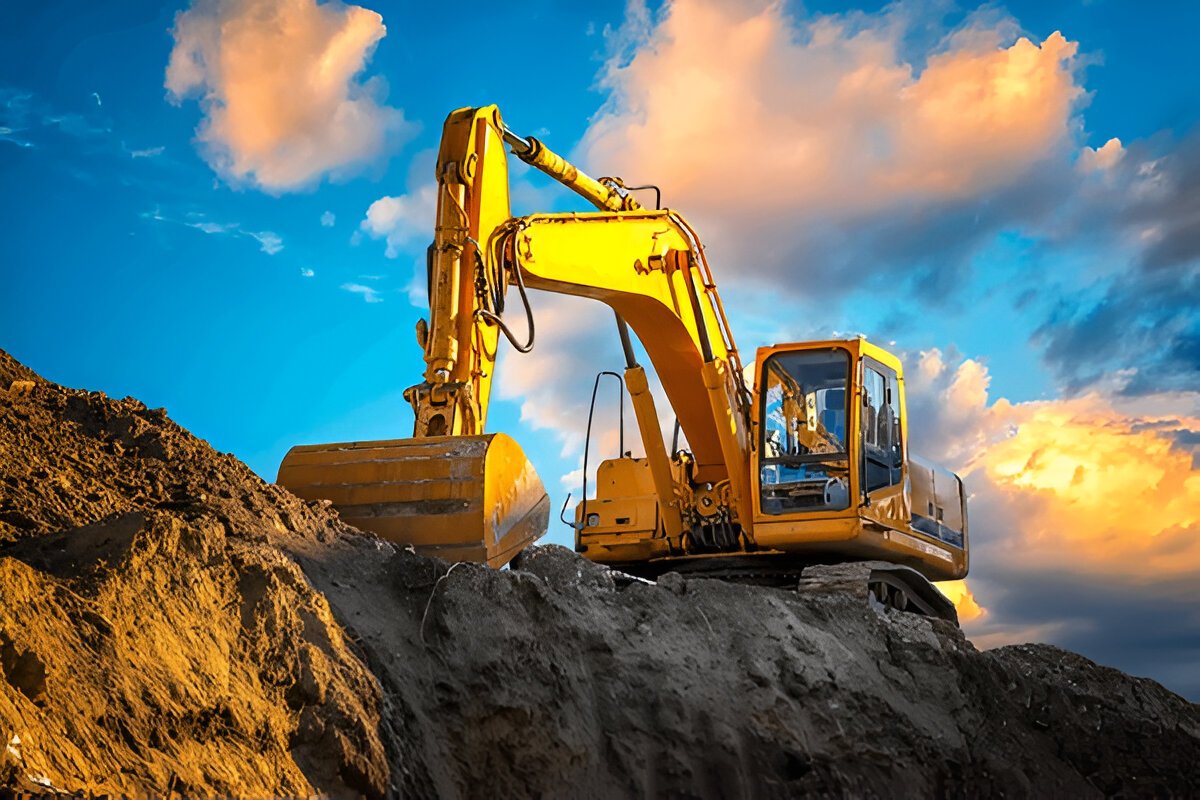Apr 05, 2025
( 0 )

This blog highlights common issues in an excavator machine’s hydraulic system, including low pressure, leaks, overheating, and slow response. It provides solutions to maintain hydraulic excavators like JCB excavator, Tata Hitachi excavator, and CAT excavator. Regular checks ensure optimal performance of construction excavators, minimizing downtime and repairs. For maintenance tips, explore Desi Machines.
The hydraulic system is the heart of an excavator. It directs the flow of power for the excavator’s movement, lifting capability, and productivity. A malfunctioning hydraulic system means inefficient equipment, leading to delays in operations and increased maintenance costs. Hydraulic systems are among the most pressurized and continually loaded parts of the excavator’s work systems. Even a small fault in the hydraulic system can lead to huge failures.
Common hydraulic problems, such as low pressure, overheating, leaking, and unresponsive controls, can greatly impact productivity in hydraulic excavators. Such problems reduce efficiency and result in expensive repairs and more downtime, increasing the project schedule.
In this blog, we will cover several hydraulic system problems that an excavator can develop, their causes, and available solutions. Whether it’s hydraulic fluid leaks, slow operation, or overheating, knowing the causes of these problems can help operators maintain their machines and avoid unexpected breakdowns. For working without any disruptions and efficiently, the excavator needs regular maintenance and timely repairs. Now, let us get into the common hydraulic problems and their solutions.
The hydraulic system on an excavator is particularly important for its functioning. Any failure could lead to a drop in performance, costly repairs, and delays on the project. The following hydraulic problems are some of the most common seen in excavators, causes of the problems, and solutions to fix them.
The hydraulic system defines an excavator’s efficiency and performance and is at the same time one of the most easily affected components. Problems such as low hydraulic pressure, overheating, slow response, leakage, and jerky movements highly hamper production and incur downtime. However, upon prompt detection and a little maintenance, most of these issues can be reduced or avoided altogether.
Regular maintenance is indispensable for the hydraulic system of an excavator to remain under peak performance. MA maintenance routine including daily checks of hydraulic fluid levels, filters, hoses, pumps, and cooling systems will prevent small inconveniences from growing into catastrophic breakdowns. Operators should also adhere to the manufacturer’s recommendations regarding hydraulic oil selection, pressure-setting procedures, and air-bleeding procedures for maximum performance.
Low hydraulic pressure, overheating, fluid leakage, slow or jerky movements, and pump noise or vibration are the most common hydraulic issues seen in excavator machines. Low fluid levels, clogged filters, or worn-out hydraulic pumps can cause low pressure, reducing the machine’s efficiency. Overheating is typically caused by degraded or low-quality hydraulic oil, overloading the machine, or malfunctioning cooling systems like fans or radiators. Check for worn seals, damaged hoses, and loose fittings. Replace or tighten components as necessary and use manufacturer-recommended fluid. This usually happens due to air in the system, worn-out seals, or faulty control valves. Bleeding the air and replacing faulty parts can help restore responsiveness. Contaminated hydraulic oil, incorrect pressure settings, or damaged hydraulic cylinders can cause jerky operations. Replacing oil and inspecting cylinders is recommended. Cavitation occurs when air enters the hydraulic system, causing vibration and noise. It damages pumps and reduces performance. Bleeding air from the system helps prevent this. Hydraulic fluid levels should be checked daily or before each operation to ensure optimal performance and prevent internal damage. No. Always use the manufacturer-recommended hydraulic oil to maintain pressure levels and prevent wear on system components. Regular maintenance, timely oil replacement, filter cleaning, pressure monitoring, and using genuine spare parts are key to preventing hydraulic failures.Frequently Asked Questions
The Rise of Smart Machinery: How AI and IoT are Transforming Indian Construction Equipment
© 2025 Desi Machines All rights reserved.
Designed & Developed by PromotEdge
Desi Machines is a platform where you can see and compare construction equipment. It showcases images, brochures, features, technical specifications, brand details & dealer information. All these are taken from respective brand websites, brochures, and other public resources. We do not claim ownership of these materials and strive to ensure their accuracy. However, the disparity may happen and we advise users to verify directly with respective brands and dealers. Desi Machines is not liable for any inaccuracies or reliance on the information provided. Use of this website is at your own discretion.